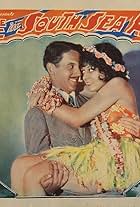AlsExGal
Joined Apr 2007
Welcome to the new profile
We're still working on updating some profile features. To see the badges, ratings breakdowns, and polls for this profile, please go to the previous version.
Ratings5K
AlsExGal's rating
Reviews5K
AlsExGal's rating
... in that the season "Big Bad" was dealt with in the episode prior to this one.
It has a dream format that is brilliant, giving us a unique kind of insight into familiar characters and the larger mythos of the series. Restless asks more questions than it answers, and the realistic unpredictability of the setting makes it kind of difficult to tell the symbolic apart from the plain weird. But that's part of what makes Restless so great. It's full of depth, but also full of humor and great character moments. It does not contextualize the characters' thoughts and fears, instead leaving interpretation up to the audience.
The foreshadowing with Buffy and the First Slayer is ominous and surreal and meaningful, prompting uneasiness without giving away any plot points. Restless is a solid transition between S4 and S5. It doesn't have the same impact on Buffy's life that the other season finales do, but it does aid in the understanding of the characters and the destinies in which they're caught up.
It has a dream format that is brilliant, giving us a unique kind of insight into familiar characters and the larger mythos of the series. Restless asks more questions than it answers, and the realistic unpredictability of the setting makes it kind of difficult to tell the symbolic apart from the plain weird. But that's part of what makes Restless so great. It's full of depth, but also full of humor and great character moments. It does not contextualize the characters' thoughts and fears, instead leaving interpretation up to the audience.
The foreshadowing with Buffy and the First Slayer is ominous and surreal and meaningful, prompting uneasiness without giving away any plot points. Restless is a solid transition between S4 and S5. It doesn't have the same impact on Buffy's life that the other season finales do, but it does aid in the understanding of the characters and the destinies in which they're caught up.
In the twelfth century, a group of friars perform a ritual to capture the demon Moloch, who demands the absolute love and devotion of his followers, into a book, hoping it would never be read. Fast forward to present day where a group of students at Sunnydale High School are scanning some ancient books, including the one where Moloch is captured, into the school's computers. When Moloch's book is scanned, the demon becomes active again, except this time he has access to the entire internet.
Shortly thereafter, Willow has a new friend named Malcolm that she started corresponding with online and has not met. It isn't long before she's doing very un-Willow-like things such as cutting classes just so she can spend more time online with Malcolm.
This episode is better than its rating IMHO, first of all because it is such a museum piece. In 1997 only 18% of all American households had internet access and only 36% owned computers, so the idea of needing to warn kids about strangers on the internet not being who they claimed to be hadn't really occurred to people at that time.
Also, this episode introduced a character that turned out to be very important in season two of Buffy - Jenny Calendar, the high school computer science teacher. Initially, she and Giles are at odds. Giles likes the familiarity - even the "smell" he says - of a good book, and finds Jenny Calendar a "horrible woman" who would change things where everything is on a computer instead. When she turns out to be a self-described "techno pagan" his attitude quickly shifts. And she's not hard on the eyes either.
This episode offers a good early focus on Willow as a smart cute girl with a confidence problem. I like how the friendship between herself and Buffy is portrayed and how Willow at first sees Buffy's concern over Malcolm's anonymous state as a lack of belief in her own ability to attract someone worthwhile.
Shortly thereafter, Willow has a new friend named Malcolm that she started corresponding with online and has not met. It isn't long before she's doing very un-Willow-like things such as cutting classes just so she can spend more time online with Malcolm.
This episode is better than its rating IMHO, first of all because it is such a museum piece. In 1997 only 18% of all American households had internet access and only 36% owned computers, so the idea of needing to warn kids about strangers on the internet not being who they claimed to be hadn't really occurred to people at that time.
Also, this episode introduced a character that turned out to be very important in season two of Buffy - Jenny Calendar, the high school computer science teacher. Initially, she and Giles are at odds. Giles likes the familiarity - even the "smell" he says - of a good book, and finds Jenny Calendar a "horrible woman" who would change things where everything is on a computer instead. When she turns out to be a self-described "techno pagan" his attitude quickly shifts. And she's not hard on the eyes either.
This episode offers a good early focus on Willow as a smart cute girl with a confidence problem. I like how the friendship between herself and Buffy is portrayed and how Willow at first sees Buffy's concern over Malcolm's anonymous state as a lack of belief in her own ability to attract someone worthwhile.

























